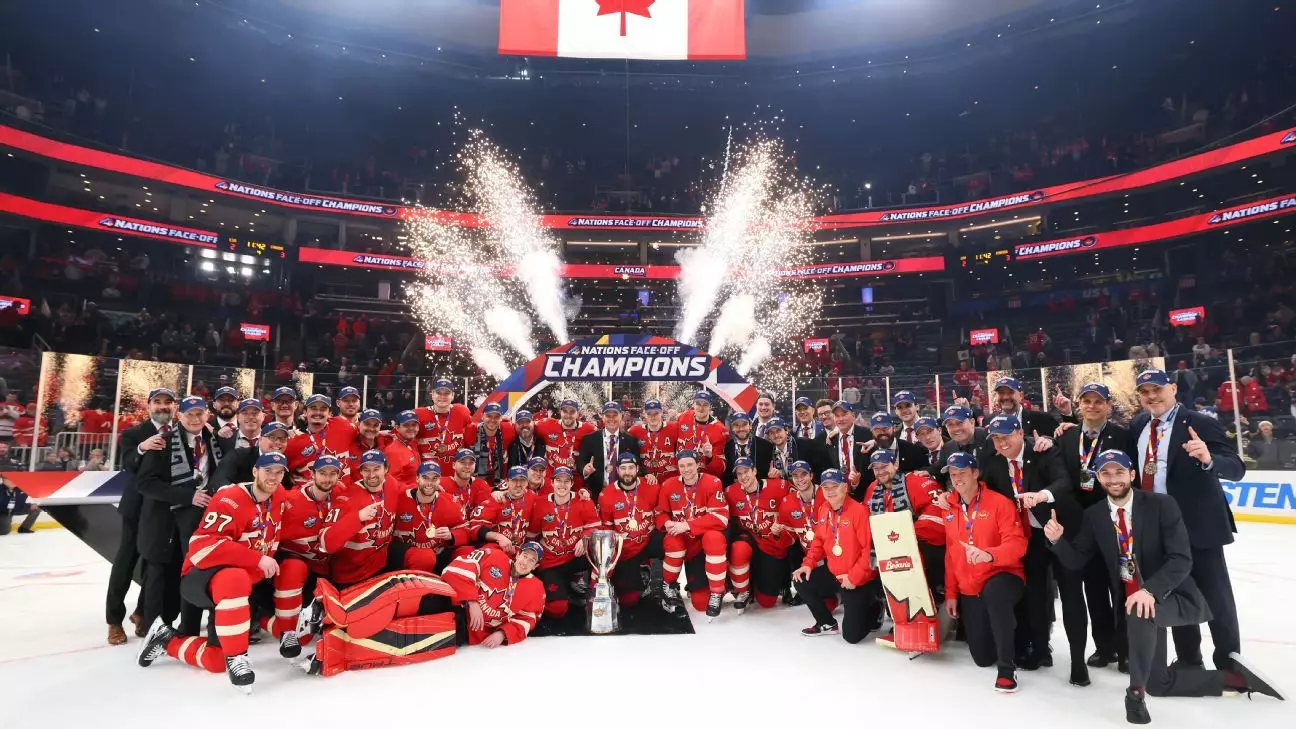In a surprising turn of events, the National Hockey League (NHL) is poised to redefine its annual All-Star showcase. After the resounding success of the innovative 4 Nations Face-Off tournament, the league is eyeing a fresh approach for the 2026 event scheduled to be hosted by the New York Islanders at UBS Arena. NHL Commissioner Gary Bettman has suggested that the league is on the verge of a renaissance—one that could propel their All-Star festivities to new heights. The success of the 4 Nations, a competition featuring players from Canada, the United States, Sweden, and Finland, exceeded expectations and has paved the way for more creative explorations. The shift implies that the NHL recognizes the need to elevate its All-Star game into something grander that resonates with the essence of the sport.
The Ripple Effect of 4 Nations
The 4 Nations tournament was not just another gimmick; it was the NHL’s return to high-stakes international competition and served as a showcase for the league’s elite talents. The round-robin format culminated in a thrilling final game won by Canada, thanks to Connor McDavid’s electrifying overtime goal. Moments like these are etched in fans’ memories and excite the future of the sport. Bettman’s acknowledgment of the significant gap between the 4 Nations and prior All-Star games speaks volumes. It spells out that the league has set the bar higher than ever and is unwilling to revert to a lackluster event. The response from fans and players alike reveals their insatiable appetite for vibrant, competitive hockey, and the NHL seems determined not to disappoint.
The Challenge of Innovation
While the NHL is gearing up for revolutionary changes, there is an air of skepticism regarding whether those changes will sufficiently resonate with fans. Bettman’s non-committal comments about what is coming next indicate a certain degree of caution. The league is in the midst of evaluating how its new vision aligns with successful past endeavors, and the uncertainty can be both thrilling and unsettling. An innovative approach is necessary, but balancing that with historical traditions and fan expectations remains a tightrope walk. The NHL’s desire for an enigmatic reveal suggests that it is taking extra precautions to avoid missteps, potentially leaving fans in suspense about what’s to come.
Engaging with Stakeholders
NHL Deputy Commissioner Bill Daly’s assertion that “everything is on the table” reinforces the idea that the league is serious about adaptation and innovation. With collective bargaining discussions looming and the deadline for a new agreement approaching, it becomes essential for the NHL to navigate its relationships not only with players but also with its fan base as well. Engaging openly with stakeholders can be an excellent strategy as it would allow the league to tailor its approach to meet the desires and needs of its audience. Even comments about junior and collegiate hockey eligibility rules show that the league is considering various aspects of the developmental path of athletes, which ultimately shapes the future landscape of the NHL.
Playoffs and Expansion: A Balancing Act
Even as the NHL plans its All-Star transformations, regular season games and playoff expectations loom large. Bettman’s reluctance to modify the playoff format suggests a strong endorsement of the current system. He is enjoying the magnitude of the competitive races leading to the playoffs, suggesting that the focus should not merely be on an All-Star game but on the entirety of the sport—playoffs included. Interestingly, this conviction highlights a potential pitfall: while innovative measures may captivate fan interest, neglecting the fundamental structure and excitement of playoff hockey could dilute the excitement the league has cultivated over decades.
Looking Ahead
One compelling aspect of this evolution involves the upcoming decentralized draft format. By breaking from tradition, where all 32 teams gather in one city, the league is experimenting with a structure that prioritizes geographical ease for teams. The consequences of this change could send ripples through the decisions made in the draft room and how prospects are approached and evaluated. Bettman emphasizes that this decision is a direct response to what clubs have expressed they want. This adaptive mindset is essential in a rapidly changing sports environment, where engaging with fan desires and operational efficiencies can significantly impact a franchise’s direction.
As the NHL steps into this ambitious new era, one can only hope that the excitement generated by thrilling competitions like the 4 Nations will serve as a catalyst for continuous growth and evolution. In the end, as the NHL navigates these challenging waters, the essence of hockey and the thrilling experiences it provides will remain at the forefront of its endeavors.

